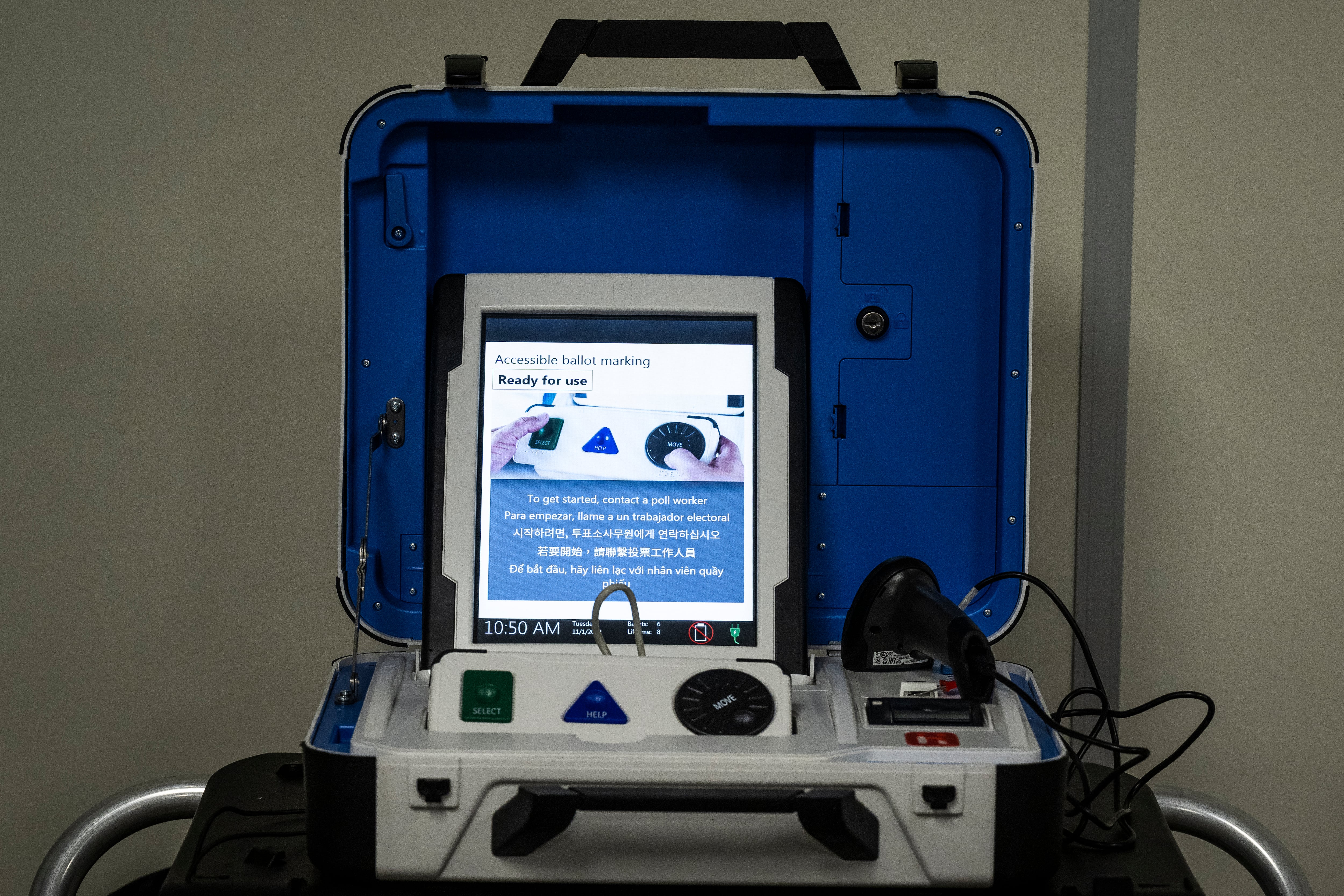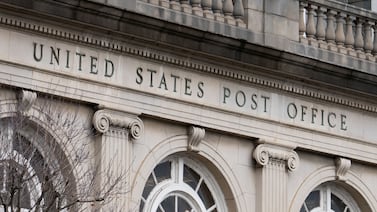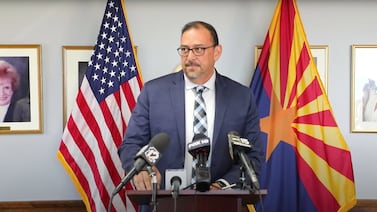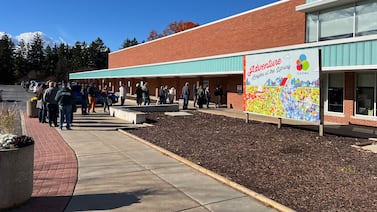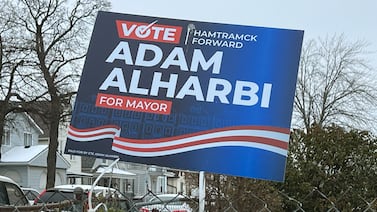Votebeat is a nonprofit news organization reporting on voting access and election administration across the U.S. Sign up for Votebeat Wisconsin’s free newsletter here.
Update, Oct. 7, 2024: A federal judge on Oct. 4 ordered Thornapple to use an accessible voting system in the Nov. 5 election after ruling that the town violated a federal law by not using any such system in the April and August elections. The temporary injunction authorizes Justice Department representatives to visit Thornapple’s polling place to ensure it’s complying with the ruling.
The U.S. Department of Justice sued two northern Wisconsin towns on Friday for allegedly not having accessible voting equipment in the April election, seeking additional action against one of the towns as it appeared poised not to use that equipment in the November election, either.
The Justice Department’s action came after officials in two Rusk County towns, Thornapple and Lawrence, voiced distrust of electronic voting equipment and later decided to ban the machines. The department additionally sued the state, which is subject to the requirements of a federal law requiring voting equipment that’s accessible to voters with disabilities in every polling place.
“By failing to offer accessible voting systems, Thornapple and Lawrence shirked their responsibilities under the Help America Vote Act to provide equal access to the ballot for all voters,” Assistant Attorney General Kristen Clarke of the Justice Department’s Civil Rights Division said in a statement.
Officials in Lawrence, a town of 300, reached an agreement with the Justice Department, pledging to provide accessible voting equipment in future elections.
But Thornapple, whom the Justice Department additionally accuses of not using voting machines in the August election, either, reached no such agreement with the department. As a result, the department requested an additional court order from a federal court in western Wisconsin to require Thornapple to have accessible voting equipment in the upcoming election, which is less than seven weeks away.
Thornapple, a town of over 700 people, moved to ban electronic voting machines in a June 2023 meeting after its chief election official, Suzanne Pinnow, raised “the controversial nature of electronic voting machines and the costs associated with them,” according to documents Votebeat obtained under the state’s public records law.
In that discussion, Pinnow referred to a state law that she said allowed smaller municipalities to opt out of voting machines, the documents state. After that discussion, the town board banned voting machines.
To date, the town hasn’t taken any action to reverse that vote, the Justice Department alleges.
Wisconsin municipalities with a population of under 7,500 people don’t have to follow the state law requiring use of electronic voting equipment, including computerized tabulators that are used to scan ballots and tally votes. But in suing the towns, the Justice Department cited federal law requiring them to have “at least one direct recording electronic voting system or other voting system equipped for individuals with disabilities at each polling place.”
Direct-recording electronic voting systems are voting machines with touchscreens, buttons, or dials allowing voters to select candidates directly on the machine. They have headphones that allow voters to hear as well as see the ballot options.
In early 2023, one month before a February primary election, the Lawrence board decided the town “will not be turning on the voting machine,” the complaint states. It didn’t have accessible voting equipment in the April 2024 election, the Justice Department alleges.
The agreement that town officials reached with the Justice Department requires town board members and the clerk to receive training on implementing accessible voting equipment for all future elections. It also requires town officials to allow Justice Department compliance officers to verify that Lawrence polling places have accessible voting equipment.
It’s unclear why the Justice Department reached an agreement with Lawrence but not Thornapple. Pinnow didn’t respond to a request for comment, and she refused to speak with a Votebeat reporter who went to Thornapple in September.
“No one is going to talk to you,” she said in a text message, saying a Votebeat reporter would only hear “a lot of speculative gossip!”
In a call with a town resident in April, a Thornapple board member Jack Zupan said he believed there was a stolen election and that “computers have to go because they’re full of error.”
Zupan, who didn’t respond to a request for comment, said hand-counted ballots are more accurate than using voting machines because, he claimed baselessly that a communist could stick a pen into a machine to manipulate the results.
Pinnow previously questioned whether the Justice Department would really go after Thornapple
“Do you think perhaps they’re going to use Thornapple,” she asked a Votebeat reporter in August, “because we are a tiny little place, as precedent to reflect back on and say, ‘Look, we forced them’?”
Alexander Shur is a reporter for Votebeat based in Wisconsin. Contact Alexander at ashur@votebeat.org .

